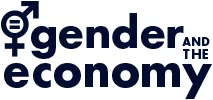Summary
Does discrimination by hiring and promotion committees contribute to the underrepresentation of women in academia? This study examines how the presence of female evaluators on hiring and promotion committees influences decision-making, and whether it improves the odds of female professors getting promoted. The authors find that having more women on evaluation committees does not increase the number of women who are accepted for promotion, nor does it improve the quality of accepted applicants. In addition, when evaluators are not familiar with candidates’ areas of study, all-male committees tend to be more favorable towards female candidates than gender-mixed committees.
This study suggests that having women serve on committees risks reinforcing male members’ sense of gender identity and weakens their dedication to gender equality.
Research
Barriers to women’s promotion in the workforce can be explained by supply-side and demand-side causes. Supply-side barriers, such as a higher workload within the home and gender differences in bargaining abilities, affect the supply of women available for positions. Demand-side barriers, such as employer discrimination, affect the likelihood that women will be considered or chosen for a job or promotion.
The present study focuses on a pervasive demand-side barrier to women’s promotion in academia: discrimination by hiring and promotion committees. In Europe, women account for 37 percent of associate professors, and only 20 percent of full professors (those promoted from the entry-level position of Assistant Professor)–these numbers are even smaller in Canada and the U.S. Hiring and promotion discrimination is thought to be magnified by the fact that men and women conduct research in different subfields. This means that when men serve on hiring and promotion committees, they may be less able to judge the quality of female applicants since they are less familiar with female applicants’ area of study. In addition, academic research networks tend to be gendered. When more men are on hiring and promotion committees, there’s a greater likelihood that male evaluators will be more familiar with male applicants than with female applicants, and may in turn display bias towards the female applicants.
Using a dataset consisting of over one hundred thousand applications for promotion to associate or full professor in Italy and Spain, the authors analyzed the gender composition of the evaluation committees. Their goal was to determine whether the gender mix affects the quality and quantity of male and female candidates being granted promotion to associate or full professor.
They found that the presence of female evaluators on committees did not increase the success rate of female candidates. Nor did the presence of female evaluators improve the quality of selected candidates, as measured by the frequency with which candidates published research papers in the five years following their promotion. In order to determine whether gender stereotypes play a role in decision-making, the authors then focused on cases where evaluators were not familiar with the research profile of the candidate.
When evaluators knew little about the candidate in question other than their gender, gender-mixed committees were less favorable towards women than all-male committees.
Upon examining information from individual votes, they found that it was the male evaluators who became less favorable towards female candidates when women were also present on the committees. The authors suggest this is because when a female colleague joins the committee, it acts to strengthen male identity and reduce men’s commitment to gender equality. They may assume that the women on the committee will be responsible for monitoring equity in decision making and therefore focus less on this aspect of the decision
Implications
- Change the review process – One implication of this study is that organizations may want to favor gender blind review processes where possible. While a blind-review process may not be realistic in academia due to the evaluation criteria at play (e.g. candidates’ publication records), it is possible to redact job candidates’ names from their resumes in other hiring contexts.
- Emphasize the importance of gender equity – Many organizations push to include both men and women on hiring and promotion committees. The risk in these mixed committees is that the men will abdicate considerations of gender equity to the female members. Hiring and promotion committees will do a better job of assuring fairness across genders if they are prompted to consider how their biases may play into the decision making. It may also be worth reminding male committee members that the female committee members are not the only ones in charge of assuring gender equity.
Title
Does the gender composition of scientific committees matter?
Authors
Manuel Bagues,
Mauro Sylos-Labini,
Natalia Zinovyeva
Institutions
Aalto University and IZA,
University of Pisa,
Aalto University
Source
American Economic Review
Published
April 2017
DOI
https://www.aeaweb.org/articles?id=10.1257/aer.20151211
Research brief prepared by
Kim de Laat







